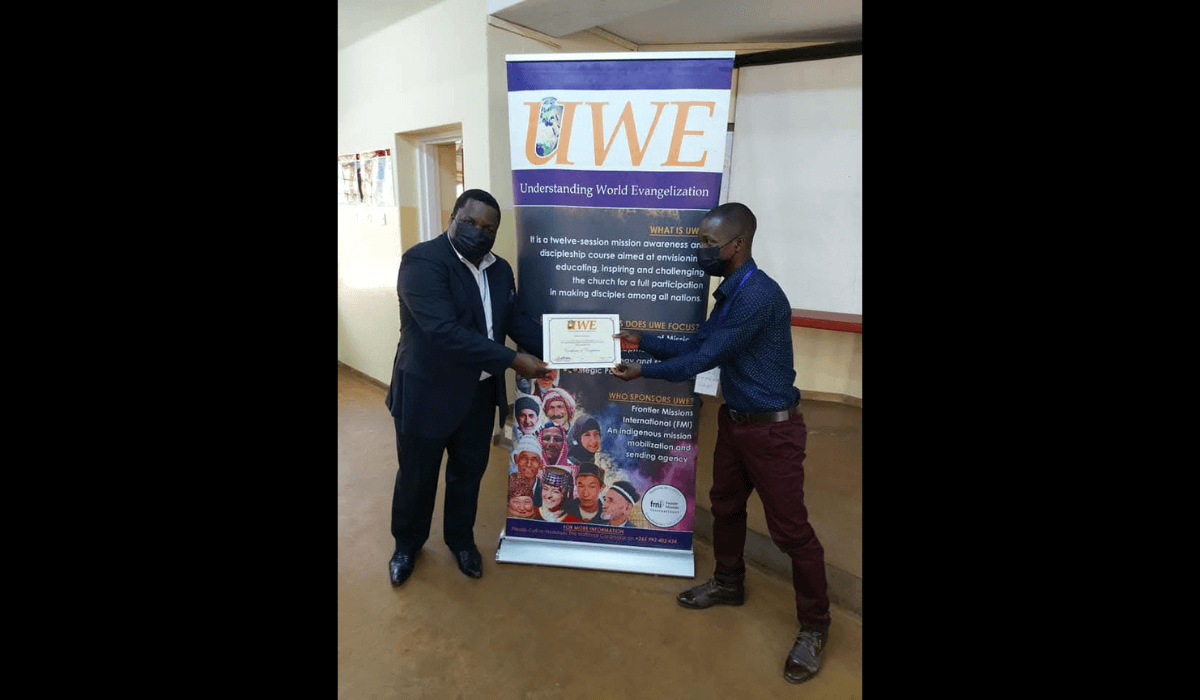Baptized to mobilize
as told to Solomon Owusu-Ansah

Listen to this article
Called: Reuben Kachala
From the moment I dedicated my life to Christ in 1988, I felt compelled to preach Christ. Salvation was sweet, and I wondered, “Why isn’t everyone receiving him?” I must tell everybody! I started handing out tracts, engaging in one-on-one evangelism, and sharing the gospel wherever I could. This passion overshadowed every other dream I had and led me to enrol in Bible school. The salvation I received gripped me so strongly that it became my raison d’etre. Up until now, no other job is as good for me as this “Jesus job”.
Baptized into missions
My journey into missions mobilization started in 1995 when I first learned about global missions in Bible school. Just like I previously proclaimed Jesus, now I eagerly shared about missions. I led a choir and began composing and singing songs about missions.
After graduation, I joined the Bible school faculty. No matter the subject I taught, I always “missionized” it, inspiring students toward the Great Commission. Later, I was elected Missions Director for the Malawi Assemblies of God (2004–2008), which placed me in a mobilization role.
A mobilizer’s task
I mobilize prayer for unreached and frontier people groups, disciple believers in missions, and share resources for training. I also write gospel tracts focused on the Great Commission and I develop and organize training programmes such as Understanding World Evangelization (UWE), which I launched in 2019. It is similar to Perspectives but simplified and contextualized for Malawi. Regularly, I speak at conferences to challenge believers about God’s heart for the nations.
Hurdles and results
Mobilization is relatively unknown among many African Christians. During our missionary service in South Asia, support was strong, but when my family returned home to focus on mobilization, many partners stopped giving. People believe missions only counts when someone is serving abroad, not when they return to mobilize others. Today, we rely on income from farming and a few faithful partners.
Many people are interested in the UWE course but are unwilling or unable to pay fees to cover essential costs, especially when many Western-run seminars are free.
Despite these challenges, results have been encouraging. In December 2023, we sent a mobilizer to Lesotho, where he does great work. Two members of my team have been sent to the unreached Chinese and Hindu communities in Malawi.
Mission realities
Churches more easily support a local pastor than a cross-cultural missionary. Secondly, indigenous African mission agencies often lack administrative and logistical structures to support missionaries fully, forcing them to rely on Western agencies that require membership fees which can be burdensome for Africans.
When my family was called to South Asia, no Malawian agency could send us, so we registered with a foreign agency in South Africa. Even then, my denomination could not afford to send us because supporting one family abroad seemed excessive compared to supporting ten local evangelists. By God’s grace, a South African Assemblies of God branch adopted us and covered half our budget.
Faith and provision
One of my greatest testimonies came when we were at risk of being sent home from the mission field because we could not pay our fees. While meeting with leaders who were about to make that decision, I received a phone call – a member of our home church wanted to pay 10,000 rand for us. They eventually sent 16,000 rand. That call ended the meeting and strengthened my faith in God’s provision.
A charge
My call to the African Church is to move beyond growing denominations and embrace God’s heart for unreached peoples. We must support mobilization because preparing and sending missionaries is itself missions.
PLEASE PRAY
- For more churches to support the work of mobilizers and missionaries.
- The African Church to obey God’s call to the nations.
photo: Reuben presents a certificate to a participant
 here
here